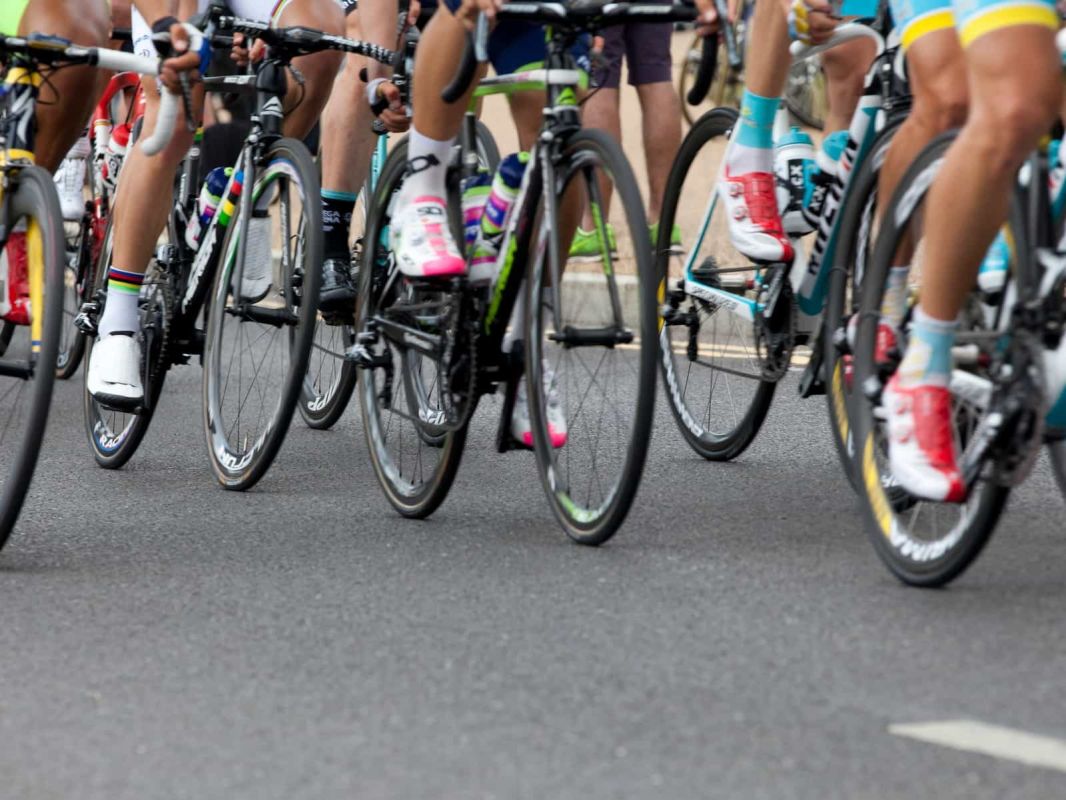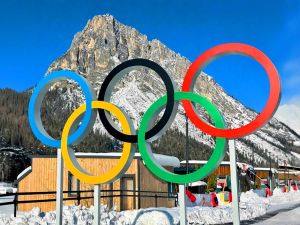As this year’s Tour de France draws to a close, we’ve explored a few striking parallels between cycling and investing. Both demand patience, strategy, and a clear understanding of one’s limits. And in both pursuits, it’s those who push through the climbs and hold their nerve on the descents who are most often rewarded.
Cycling, more than any other sport, stages the tragedy of man against himself. It’s an exercise in patience and repetition, a journey. A race like the Tour de France is a 21-chapter poem, with each stage following its own narrative arc. It stands as a monument to human endurance: perhaps the last truly epic sport, defined by men and women pushing upward with the wind in their faces. In this sport, heroes don’t just win – they endure, through dust or in glory.
Much like cycling, investing is a path made up of ups and downs. And just like the long chase for the yellow jersey, a symbol of excellence, prestige and victory, what truly matters is how you reach the finish line.
It’s the finish line that counts – not the early breakaways
In road cycling, leading the group in the early part of the race is rarely decisive. A rider can take centre stage for a hundred kilometres, only to be caught on the first serious climb. What matters most is knowing how to manage your energy and staying fresh when it counts – when the finish line is near. The same is true for stage races: some aim for single-day glory, but to place well overall, consistency is key.
The same principle applies to investing: long-term success is built on a strong average. A single bad or brilliant period can have little impact on the final result. Returns are earned over time, with patience and effort. What matters is discipline. That’s why, for most long-term investors, the smartest approach is to move towards your goal at your own sustainable pace.
The invisible force of staying in the group
Riding in the heart of the peloton takes less effort. Slipstreaming can save up to 30% of energy. Riders take turns at the front while others recover in the middle. Aerodynamic studies show that riding at 50 km/h in the group can feel like riding solo at 15 km/h into the wind. What’s fascinating is that this cooperation isn’t formally organised – each cyclist acts in their own interest, and yet that’s exactly why the system works. Even rivals benefit from each other’s presence.
Something similar happens in financial markets. Here too, a form of unconscious cooperation emerges. Investors, by seeking their own gain, can create collective value. Unlike speculative bets, where one wins and another loses, productive investments increase overall wealth and can offer positive returns to many. It’s a positive-sum game. Like the peloton, there’s room for everyone. The key is to stay in the flow – falling behind can mean being left out entirely.
There’s no single winning strategy
Not every rider in the Tour de France aims for the yellow jersey. Some go for stage wins, others for the points or to become the best climber. Some teams chase visibility, knowing one good day in front of the cameras can make a season. It’s the same in investing: there’s no one-size-fits-all path to success. Some seek maximum growth, others capital preservation or steady income. Everyone has their own goals and time horizons.
Like in the Tour, the key is alignment between strategy and resources: you won’t win a mountain stage with a sprinter. But in a long, collective race, there’s room for everyone to find their challenge and reach their goal.
Breakaways: ambition vs probability
The breakaway is cycling’s greatest gamble – a few riders break from the group hoping to outpace a more cautious peloton. It’s a bold move but often ends in disappointment. The effort is huge, the wind relentless, and most are caught before the finish.
In investing, this resembles active management. The active manager tries to spot hidden inefficiencies and generate returns that others can’t. Sometimes it works – but data tells another story: according to the S&P Dow Jones Indices’ SPIVA Europe scorecard, over 85% of European active equity funds have underperformed their benchmarks in the past decade. And even when they succeed, results are rarely consistent. But as we know past performances aren’t indicative of future returns.
As in cycling, the peloton lets you go. But in most cases, it’s the law of numbers that prevails. Just 2.5% of breakaways result in victory. Still, someone will always try, as long as there’s a sliver of hope. Most, however, stay in the group – conserving energy, managing risk, and waiting patiently for the right moment.
Risk management: the invisible key to success
Attacks are the most memorable – solo climbs, dramatic sprints, last-minute lunges. But winning the Tour is mostly about invisible work: staying safe, managing energy, and avoiding unnecessary risks.
General classification riders and their teams spend hours at the front to avoid crashes. They pace themselves, stay alert, and make disciplined decisions. It’s a quiet, repetitive form of control that makes all the difference. The same goes for investing: consistent, thoughtful risk management is essential for long-term success. Knowing when to push and when to hold back can define your outcome – in the mountains or in the markets.
Final thoughts
The Tour de France isn’t won in a single day or with a lucky break. Investing is no different: what matters over time is consistency. You need to know when to push and when to protect. The result is built in the quiet discipline of managing risk – whether climbing a Pyrenean pass or navigating an uncertain economic cycle. And just like in cycling, the key is to stay in the saddle and keep moving forward, with purpose and patience.
As with all investing, your capital is at risk. Past performance and forecasts are not a reliable indicator of future performance.
*As with all investing, financial instruments involve inherent risks, including loss of capital, market fluctuations and liquidity risk. Past performance is no guarantee of future results. It is important to consider your risk tolerance and investment objectives before proceeding.





